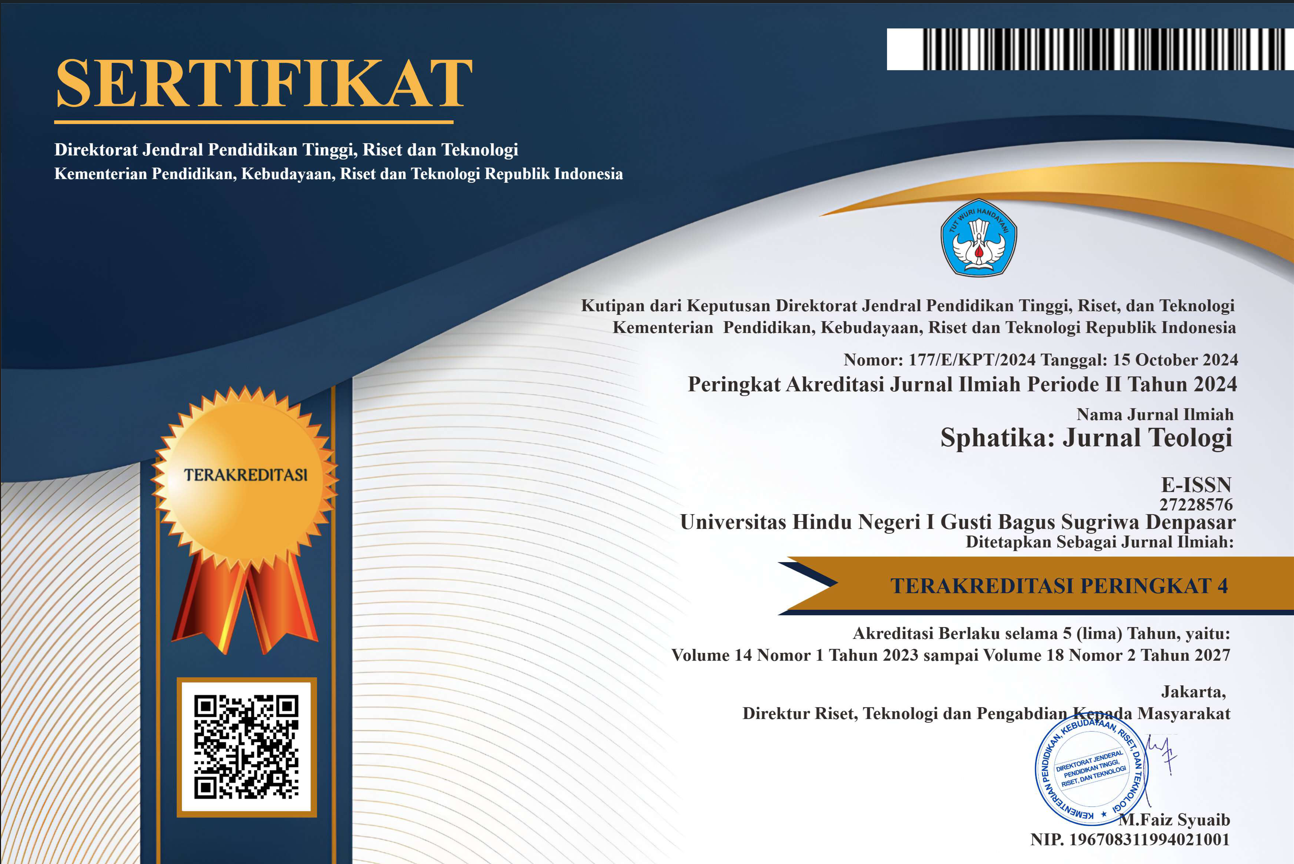Formulasi Teologi Kerja dan Hubungannya dengan Reinkarnasi dalam Teks Bhagavad Gītā
DOI:
https://doi.org/10.25078/sphatika.v12i1.1270Keywords:
Bhagavad Gītā; reincarnation; theology of workAbstract
Every action will produce a result (phala) which leads to two motives, namely attachment and freedom. Humans in their lives can choose which goals they will achieve. Do they choose to be bound by the results of each work or otherwise surrender all the results of their work as an offering to God. Work done as an offering to God will achieve liberation and joy, on the other hand, work done with the motive of hoping for the result (phala) as a reward will increase the feeling of attachment and sorrow. Therefore, people who want to find happiness and true self must place their goals in work that are entirely an offering to God. This is what is meant by Theology of Work or the term in Bhagavad Gītā is called Karma Yoga, which is the highest knowledge of a main Principle of Work. The realization of an understanding of the real concept about Theologi of Work can help humans break the chain of reincarnation (punarbhava) by presenting God in every work activity, whether in the form of actions, speech or thoughts.
References
Bhawuk, Dharm P.S. 2011. Spirituality and Indian Psychology: Lessons from the Bhagavad-Gītā. New York: Springer.
Dister, Nico Syukur. 2007. Pengantar Teologi (Introduction to Theology). Yogyakarta, Kanisius.
Donder, I Ketut. 2010. Teologi–Pengetahuan Ilmiah tentang Tuhan–Paradigma Sanatana Dharma (Theology-Scientific Knowledge of God-Paradigm of Sanatana Dharma). Surabaya: Paramita.
Donder, I Ketut. (2012). Theology Of Work In Karma Yoga Teaching: Working As Holy Sacrifice To God. Jurnal Pangkaja IHDN Denpasar. 13(1). Hal 89-109.
Jendra, I Wayan. 2004. Karmaphala–Pedoman dan Tuntunan Moral Hidup Sejahtera, Bahagia, dan Damai. Denpasar: Deva.
Maswinara, I Wayan. 1999. Bhagavad Gītā. Surabaya: Paramita.















